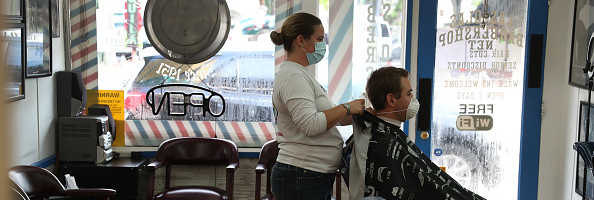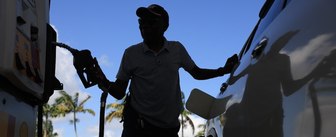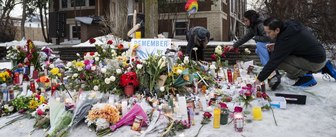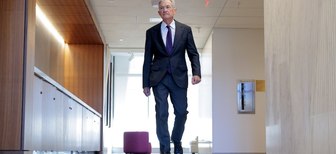Many Americans are conflicted over how to balance the protection from the coronavirus in the form of social distancing and stay-at-home orders with the need to re-open the US economy. This balancing act is reflected in the latest Economist/YouGov Poll. A majority of Americans believe it’s likely there will be more coronavirus cases as the economy reopens, including half of those who believe that reopening the economy now is the right decision to make.
The public is evenly divided (39% to 39%) on whether lifting restrictions on businesses now is the right or wrong decision, and there is a clear partisan divide as wells. By three to one (63%-21%), Democrats describe reopening the economy now as the wrong decision, while Republicans say it’s the right move by an even greater five to one margin (71% to 14%).
For Republicans, the economy should be the most important focus. By 60 percent to 40 percent, they are more concerned about protecting Americans from the economic effects of the virus than protecting them from the health effects. The public overall prioritizes protecting health (64% to 36%). Republicans are consistently more likely than Democrats to label “jobs and the economy” as the country’s most important issue. For Democrats and Americans overall, health care still ranks first.
Most Americans (Democrats and Republicans) believe that both social distancing and the stay at home orders have been at least somewhat effective in controlling the spread of the coronavirus. About three in five (62%) are personally worried about contracting the coronavirus, which has been the case for most of the last few months.
But the state of the economy is worrying to most people, too. A majority (57%) of all Americans say the economy is getting worse. The same number (57%) say the economy is currently in recession, and four in five (80%) blame the virus for unemployment. Half of the public places the current unemployment rate above the 14.7% rate the Bureau of Labor Statistics reported earlier this month. Nearly one in five say it will jump above 25 percent next month.
Republicans are somewhat more hopeful about next month’s jobless rate, though nearly half (46%) expect it to increase.
Bringing the economy back, however, is seen as something for the long haul. Seven in 10 Americans say it will take at least a year for the economy to come back; one in three expect it to take several years. Republicans are more optimistic, as two-thirds expect the recovery to take six months to a year. Democrats are more pessimistic, with four in five expecting recovery will take at least a year.
There is a certain amount of optimism, at least among Republicans, that the health danger from the virus is receding. A third of Republicans believe it is safe to end social distancing now. About half (53%) say it can end by September 1 – something that less than a quarter of Democrats believe. Republicans narrowly support the protests to reopen the economy (48% to 42%) while the public overall disapproves by more than two to one.
Republicans also are more willing to believe that the worst of the crisis is over. Most of the public overall isn’t so sure.
But optimism only goes so far. There is worry that whatever happens immediately, as the country re-opens sectors of the economy, may not mean it’s the last time the country is impacted by the coronavirus. Most Americans, Republicans as well as Democrats, expect there will be a second wave of the virus – and that the wave will be just as bad or even worse than what is happening now. Six in ten expect total deaths from COVID-19 will exceed 100,000; one in four think they will exceed 250,000.
Related: Becoming a coronavirus contact tracer intrigues those whose employment was impacted by COVID-19
See the toplines and crosstabs from this week’s Economist/YouGov Poll
Image: Getty













